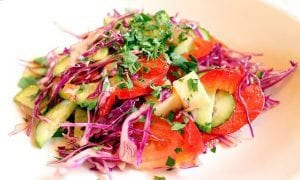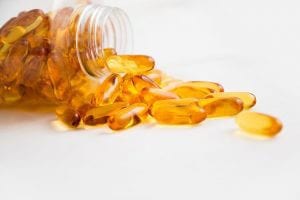For a long time now, I have wondered if a more natural or even metaphysical treatment to the chronic scaly, itchy, red skin I was experiencing from my guttate psoriasis would finally be the cure I was looking for.
I have tried most other traditional, fancy, and medical treatments for my skin, and while some have proven effective in the short run, in the long run, my psoriasis often comes back more prominent than ever.
Because of this, physician Paul Bechet describes psoriasis as
“the antidote to a dermatologist’s ego.”
Furthermore, these treatment options have severe and scary side effects, including risk of TB, lymphoma, and heart failure.
Could psoriasis be cured more effectively, and without being at the expense of all of these risks?
The idea of a more natural treatment approach intrigues me, as I have always been very health-conscious, and honestly at this point, I think that any option that would give me a little bit of hope is worth pursuing.
There are some patient testimonials out there that claim certain diet strategies or vitamins can help relieve the symptoms of psoriasis, but frankly, I was never that keen to trust them. However, I think that now is the time for me to finally try some alternative medical approaches, if nothing else, to give me a sense of control over the state of my skin, which is something that I crave every day.
I found a recently written article online that re-sparked my intrigue in this idea titled, “Psoriasis Treatment: Does Your Diet Matter?” Here is a brief summary of the article:

- Achieve and maintain a healthy body weight, as obesity is linked to disease severity. “Even weight gain of just 10 pounds appears to increase risk by up to 8%, regardless of BMI classification.”
- Stick to the autoimmune protocol (AIP) diet that eliminates gluten, soy, dairy, legumes, grains, added sugars, nightshades, and alcohol, as these substances may trigger undesirable autoimmune reactions, such as psoriasis.
Source: Pixabay - A Western diet that is high in fat, sodium, and added sugars has been linked to inflammation and autoimmune disease, so stick to an anti-inflammatory diet or Mediterranean diet, which is moderate in calories, reduces added sugar, emphasizes fruits, vegetables, and whole grains, and eliminates trans fats.
Source: Pixabay - Take dietary supplements such as fish oil for anti-inflammation, probiotics to restore gut bacteria diversity, and vitamin D to help regulate the immune system. Other supplements (selenium, curcumin, quercetin) may also be beneficial, but they do not show as consistently promising results as the former three do.
Realistically, I know that I cannot do all of these things that the article suggested. So, this is what I’ve cherry picked to try for the next 30 days:
I will cut out as much dairy as I can (but I am from Wisconsin and love my cheese and ice cream). I will also cut out added sugars and alcohol, except or maybe a glass of red wine here or there. In addition to these new dietary restrictions (along with keeping up with my vegetarian diet), I will start taking Omega 3 fish oil and vitamin D supplements every day.
It is worth noting the current state of my skin and my current treatment regimen to provide a baseline:
I take a Humira injection biweekly and apply lotions and moisturizers every day. I also have two topical corticosteroids, called Dovonex and Clobetosol, but I do not use them very often. I will continue with this regimen during this experiment, under my doctor’s instruction.
My psoriasis looks like one large plaque covering my entire stomach, and it is now starting to move to my back and butt. I have some smaller plaques on my arms and legs, as well. Overall, I’d say that it is covering about 25%-30% of my total body.
I will document my progress (or lack thereof) in the state of my psoriasis weekly, and hopefully I will find success to these lifestyle changes to share with you all.

What do you think of this experiment? Have you tried a more natural treatment regimen? Share your thoughts with the Patient Worthy community!








